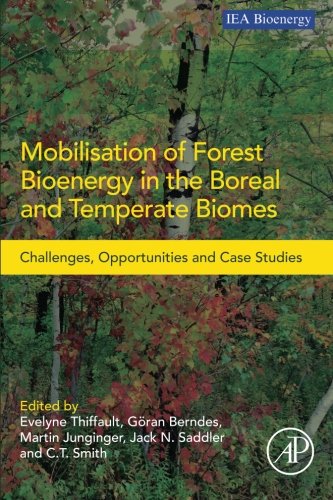

Most ebook files are in PDF format, so you can easily read them using various software such as Foxit Reader or directly on the Google Chrome browser.
Some ebook files are released by publishers in other formats such as .awz, .mobi, .epub, .fb2, etc. You may need to install specific software to read these formats on mobile/PC, such as Calibre.
Please read the tutorial at this link. https://ebooknice.com/page/post?id=faq
We offer FREE conversion to the popular formats you request; however, this may take some time. Therefore, right after payment, please email us, and we will try to provide the service as quickly as possible.
For some exceptional file formats or broken links (if any), please refrain from opening any disputes. Instead, email us first, and we will try to assist within a maximum of 6 hours.
EbookNice Team

Status:
Available4.4
27 reviewsMobilisation of Forest Bioenergy in the Boreal and Temperate Biomes: Challenges, Opportunities, and Case Studies features input from key international experts who identify and analyze the main opportunities and roadblocks for the implementation of sustainable forest biomass supply chains in the boreal and temperate regions. It draws from responses to surveys that were sent to specialists from different countries, compares models of bioenergy deployment, and discusses different types of bioenergy carriers.
Efficiency and profitability of the supply chain are analyzed and the scale and level of confidence of feedstock inventory estimates are highlighted. Logistics and ecological and socio-economic footprints are also covered. This book provides a synthesis of the scientific and technical literature on specific aspects of forest biomass supply chains, and quantifies future potentials in comparison to estimates provided by other sources and the targets for bioenergy production set by various organizations (IEA, IPCC, etc.).
Finally, the book proposes recommendations for practitioners, policymakers, and future research. This approach makes the book especially relevant for professionals, policymakers, researchers, and graduate students in the field of bioenergy conversion and management, as well as those interested in sustainable management of natural resources.